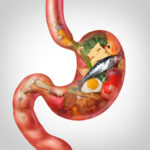By Bonnie Jenkins, Advanced Natural Wellness,
My mother-in-law smoked for nearly 35 years before she finally gave it up more than 15 years ago. The problem is, however, that the damage to her lungs was already done – and now she’s living with a diagnosis of Chronic Obstructive Pulmonary Disease, more commonly known as COPD.
The dog days of summer, with its thick and stagnant weather, can leave her literally gasping for air. She’s not alone. More than 30 million Americans live with a chronic lung disease and, for them, breathing can be a chore every day of the year.
Gasping for Breath
People suffering from an asthma attack experience irritated, inflamed and ultimately narrowed airways. While it can be frightening, it’s often controllable. But if your have emphysema or chronic bronchitis—collectively called COPD—the passage of air becomes permanently obstructed. And it just gets worse with age, as the lungs lose their elasticity and become less resilient.
As my mother-in-law will tell you, symptoms can include wheezing, coughing, excessive mucus production, shortness of breath and chest tightness. And it’s no picnic.
One of the culprits behind these symptoms is oxidation, which generates dangerous free radicals. These misbehaving molecules are partly responsible for the obstruction and stiffening of the lungs’ airways. But there are some easy ways to lessen the effect of oxidation, starting by boosting your antioxidant intake.
MD Exposes the Hidden Danger to Your Eyes

When your eyesight starts to fail, it's a real problem. Suddenly you can't go to the grocery store... you can't get to the doctor if you have an emergency... you can't meet your friends for dinner…
Your "regular" doctor doesn't have time to keep up with the latest research. And the same goes for eye doctors. They go to school to learn how to fit you for glasses and contacts, but have no way of preventing the damage and loss of eyesight that threatens your freedom and independence.
Let me show you something that explains a LOT about how your eyes work.
In my FREE Special Report, I'll show you a HUGE, untapped resource for your eyes that safely and naturally restores clear, effortless eyesight.
Click here to get started...
The Antioxidant Connection
Vitamin C, a well-known antioxidant, has been singled out as a potential respiratory protector because it’s the main antioxidant found on the surface of the lungs’ airways. It seems logical then, that getting plenty of vitamin C through diet and supplements can help the lungs fend off oxidation.
In one recent randomized, placebo-controlled trial of 35 COPD patients, those given either 250 mg. of supplemental vitamin C or 200 to 400 IU of vitamin E daily for 12 weeks experienced less damage from free radicals. The researchers suggest that these vitamins boost the white blood cells’ resistance against oxidative challenge, slowing the decline in lung function for people suffering from COPD.
While this particular study used a fairly low dose of vitamin C, to get the most from your C supplement it’s a good idea to take 1,000 mg. of this essential nutrient daily. If you don’t routinely eat a lot of citrus or leafy green veggies, increase your daily dose to 2,000 mg.
Of course, vitamin C isn’t the only nutrient that helps people with COPD. Research has pointed to the flavonoid quercetin, present in the skin of apples. In fact, people who eat five or more apples a week have better lung function than those who eat none. Other preliminary research suggests that adding green tea and red wine to your diet might also improve lung function.
Oil Change
Most of us get far too many omega-6 fatty acids in our diets. Found primarily in vegetable oils, eating an overabundance of omega 6’s can have an adverse affect on lung function, especially for smokers. But omega-3 fatty acids, abundant in oily fish, play a proactive role in protecting the lungs by reducing inflammation, which is at the root of many respiratory ailments.
Are You Suffering From...
- Love handles and a pot belly
- Romance that isn't what it used to
- Forgetfulness and inattention
- Low (or no) strength and endurance
- A sex drive that's shifted into neutral...or worse
If so...you may have Mature Male Burnout. Click here to discover more about this unique condition and what you can do about it.
Here’s how it works: Omega 3’s limit the body’s production of leukotrienes, substances that trigger the swelling and narrowing of airways. Eating fish several times a week or taking a daily dose of 3,000 to 4,000 IU of a high quality marine lipid fish oil supplement can help ease the inflammation that triggers many of the symptoms that makes breathing difficult.
One study split COPD sufferers into two groups. One group was assigned to eat a diet rich in omega-3 fatty acids. The other group got fewer omega-3 fatty acids. By the end of the study, the patients’ getting the most omega-3’s not only had considerably less lung inflammation than the folks eating fewer omega-3s, they were also able to walk farther than they could at the beginning of the study without becoming breathless.
One Last Thing …
Smoking is the underlying cause of the majority of cases of emphysema and chronic bronchitis. Anyone who smokes should stop, and, although quitting smoking won’t reverse the symptoms of COPD, it may help preserve the remaining lung function.
Yes, quitting is hard – maybe the hardest thing you’ll ever do. But, as an ex-smoker, I can assure you that it is possible to quit – and there are more ways to do it than ever before, from nicotine gum to hypnosis to prescription medications. It may take several tries with various methods but don’t give up! The benefits of becoming a non-smoker far outweigh the draw of this most unhealthy addiction.
Research Brief …
Can’t sleep? Practicing tai chi chih, the Westernized version of a 2,000-year-old Chinese martial art, might help, say U.S. researchers.
Scientists at the University of California-Los Angeles studied 112 healthy adults ages 59 to 86, who were randomly assigned to one of two groups for 25 weeks. The first group practiced 20 simple tai chi chih moves; the other participated in health education classes that included advice on stress management, diet and sleep habits.
The study found the tai chi group experienced improved sleep quality. They also had less daytime drowsiness and a better ability to concentrate compared with those just receiving the health education.
Tai chi has become hugely popular in recent years and you can find classes at most health clubs and some community recreation programs. Not a joiner? You can practice tai chi in the comfort of your own living room with the help of a tai chi DVD.
References:
Chapman-Novakofski K, Brewer MS, Riskowski J, et al. “Alterations in taste thresholds in men with chronic obstructive pulmonary disease.” Journal of the American Dietetic Association. 1999;99:1536-1541.
Grievink L, Smit HA, Ocké MC, et al. “Dietary intake of antioxidant (pro)-vitamins, respiratory symptoms and pulmonary function: the MORGEN study.” Thorax. 1998; 53:166-171.
Matsuyama, W, Mitsuyama H, Watanabe M, et al. “Effects of Omega-3 Polyunsaturated Fatty Acids on Inflammatory Markers in COPD.” Chest, 2005;128: 3817-3827.
Wheeler M. “Elderly’s restless nights helped by ancient martial art.” UCLA Newsroom. 20 June 2008.
Wu TC, Huang YC, Hsu SY, et al. “Vitamin E and vitamin C supplementation in patients with chronic obstructive pulmonary disease.” International Journal of Vitamin and Nutrition Research. 2007;77:272-279.






